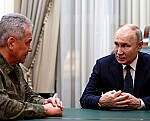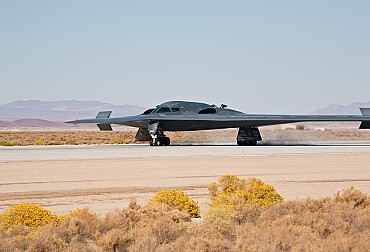Historic milestone: Sweden's NATO membership secures final approval from Hungary
In a momentous turn of events that marks a pivotal chapter in European security dynamics, Sweden stands on the cusp of becoming the 32nd member of the North Atlantic Treaty Organization (NATO). This development came to fruition following the Hungarian parliament's overwhelming approval of Sweden's bid to join the military alliance, thereby overcoming the last significant obstacle in a journey that spanned over eighteen months.

On a day that will be etched in the annals of history, the Hungarian legislature cast a decisive vote, with an impressive tally of 188 in favor against a mere 6 dissenters. This long-anticipated decision paves the way for Sweden to integrate into the NATO framework, enhancing the collective security fabric of the Euro-Atlantic region.
The path to this historic juncture was not devoid of challenges. Hungary, under the leadership of Prime Minister Viktor Orbán, who is known for his relatively congenial stance towards Russia and President Vladimir Putin, had been the final NATO member to withhold approval. Orbán's protracted hesitance was a source of tension within NATO circles, given the prevailing apprehensions about Russia's aggressive postures in Europe. The deadlock was eventually broken following a meeting in Budapest between Orbán and Swedish Prime Minister Ulf Kristersson, culminating in a green light for the parliamentary vote.
In a symbolic gesture of cooperation, coinciding with the diplomatic breakthrough, Hungary announced a defense procurement deal involving the acquisition of additional Saab JAS 39 Gripen multirole fighter jets, underscoring a deepening of military ties with Sweden.
The Swedish Prime Minister's office took to the social media platform X (formerly known as Twitter) to commemorate this watershed moment, heralding it as a testament to Sweden's readiness to contribute to the Euro-Atlantic security landscape. NATO Secretary General Jens Stoltenberg echoed this sentiment, lauding Sweden's impending membership as a boon to the alliance's collective strength and security.
Sweden's NATO accession journey was initiated in tandem with Finland, in the aftermath of Russia's invasion of Ukraine, signaling a significant shift in the Nordic countries' security policies. The accession process, however, encountered hurdles, notably due to reservations from Hungary and Turkey. Turkey's concerns centered around Sweden's handling of issues related to the Kurdistan Workers’ Party (PKK) and the extradition of individuals deemed as terrorists by Ankara. Sweden's comprehensive response included constitutional amendments, bolstering anti-terror legislation, and enhancing counter-terrorism measures, ultimately culminating in Turkey's approval of Sweden's NATO membership.
In response to the heightened security environment following the Ukraine conflict, Sweden has significantly ramped up its defense expenditure, committing to a nearly 30% increase in defense budget, alongside substantial military and humanitarian aid to Ukraine. Sweden's contribution to Ukraine's defense capabilities has been notable, including the provision of advanced military hardware such as Saab Combat Boat 90 fast assault crafts, armored combat vehicles, anti-tank weapons, and self-propelled howitzers.
Sweden's accession to NATO is poised to fortify the alliance's eastern flank, with Stockholm expected to bring substantial naval and air power capabilities to the table, including the advanced Saab JAS 39 Gripen fighter jets and state-of-the-art A26 attack submarines. This strategic enlargement of NATO underscores the evolving security landscape in Europe and reinforces the alliance's commitment to collective defense and stability in the face of emerging threats.










